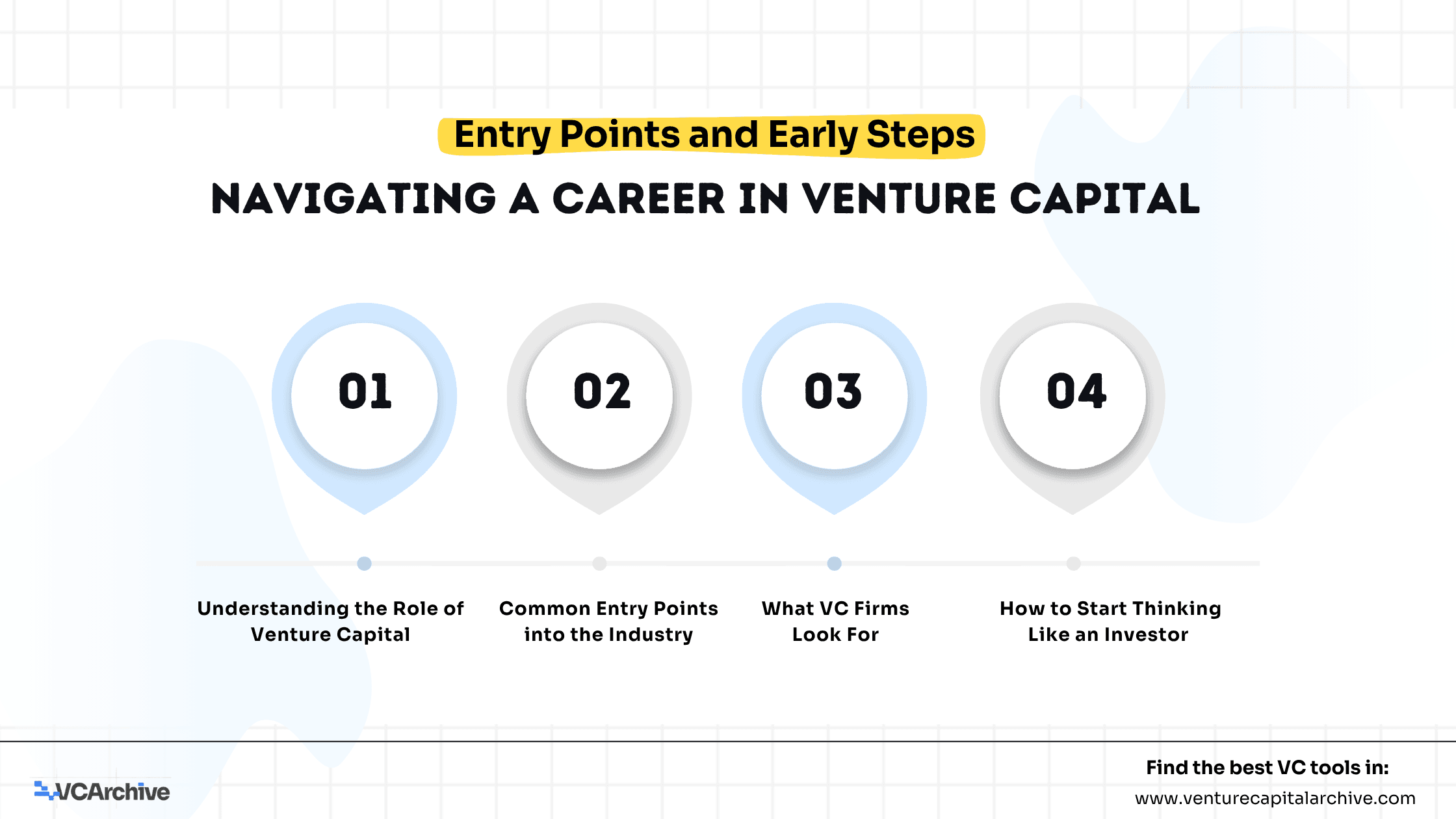
Navigating a Career in Venture Capital: Entry Points and Early Steps

Understanding the Role of Venture Capital
Venture capital is more than just early-stage funding. It’s about forming conviction before the market does and supporting startups through high-risk, high-growth phases. VCs evaluate founding teams, assess market opportunities, and make long-term bets based on limited data. Great investors combine financial analysis, sector insight, and founder empathy to help startups scale successfully.
Common Entry Points into the Industry
There is no single path into VC, but several well-established routes continue to serve as strong entry points.
- Analyst or Associate Roles: Structured positions at VC firms, often filled by professionals with backgrounds in consulting, banking, or tech. These roles involve sourcing startups, conducting due diligence, and supporting the investment team.
- Startup Operating Experience: Working inside a startup gives future investors firsthand exposure to the challenges of building and scaling a business. This experience builds credibility and founder empathy, especially valuable at early-stage funds.
- Building a Public Investment Profile: Many breaks into VC by writing investment theses, analyzing companies, launching newsletters, or participating in angel deals. Fellowships such as Kauffman Fellows, Included VC, or Ondeck can also provide structured exposure.
What VC Firms Look For
Firms are not just evaluating résumés. They’re looking for future investors who can contribute to sourcing, diligence, and portfolio support with clarity and judgment.
- Clear Thinking: The ability to analyze markets and companies and form original, well-structured opinions.
- Good Instincts: An eye for early-stage potential and the confidence to identify promising founders before consensus forms.
- Strong Communication: Skill in expressing ideas clearly, both in writing and conversation, is critical for internal discussions and external influence.
- Founder Empathy: A strong understanding of the founder's journey. Operational or startup experience helps investors build trust and add value.
- Network Strength : Access to relevant founders, operators, and co-investors. A strong network supports deal flow and enhances firm visibility.
While no one is expected to master all of these traits immediately, consistent progress across them helps you stand out.
How to Start Thinking Like an Investor
You don’t need a job in VC to begin developing the mindset. Many of the most respected investors started by treating it like a craft long before they were officially part of a fund.
Write investment notes on startups you admire. Track emerging sectors. Create a portfolio of hypothetical investments and share your reasoning. Attend founder events, engage with the ecosystem, and build relationships that reflect your long-term interest in space.
The goal is to be seen as someone who already thinks and operates like an investor—even before receiving the title.
Final Thoughts
Breaking into venture capital takes time, but it is absolutely achievable. The most successful candidates are not waiting for a formal opportunity. They are already reading, writing, connecting, and helping others grow.
Start now. Build publicly, think independently, and contribute meaningfully. If you act like an investor today, the opportunities will find you tomorrow.